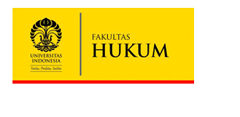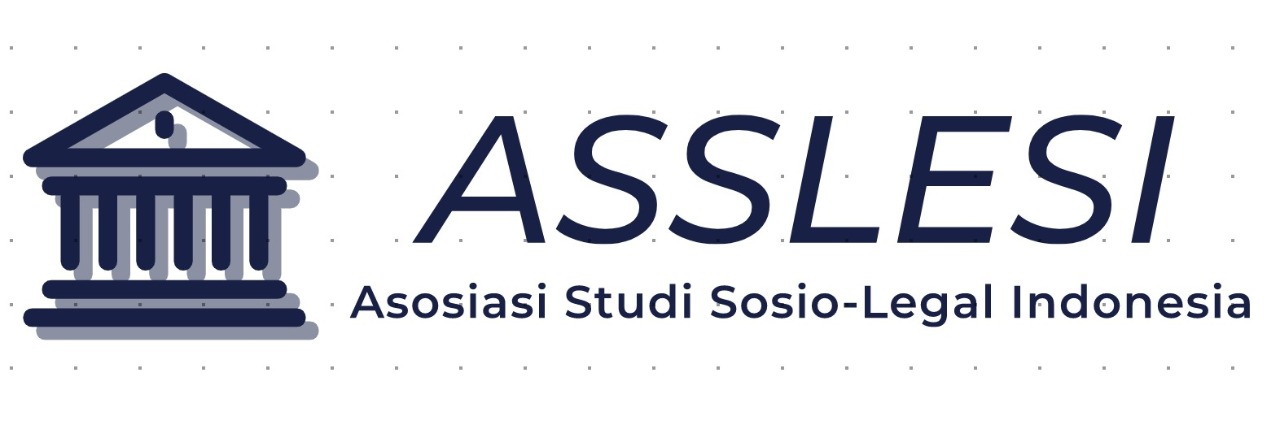Abstract
This study analyzes the narratives of women’s resilience in disaster from the post-colonial feminism approach. Ecological justice and gender issues have been addressed by other studies on Indonesia to amplify the voices of Indonesian women, but few of them focus on women’s narratives. As a culture relying on oral traditions, Indonesian women’s narratives and stories are instrumental in decolonizing the knowledge on ecological justice. Even though feminist perspectives play an instrumental role in addressing ecological justice in Indonesia, studies using post-colonial feminism remain very limited.
This study employs post-colonial feminist ethnography and focuses on three watershed areas in Bengkulu, Indonesia: Rindu Hati village representing rural upstream location; Talang Empat village representing rural midstream region, and Tanjung Jaya village representing downstream urban areas. Interviews were conducted with women who are members of peasant groups, agricultural workers, traders, village administrators, and other community members.
The narratives show several important trends: (a) Women’s daily live reflects their knowledge about the environment and women’s responses to disaster and climate change indicating local eco-consciousness, resilience, and adaptation to changes. (b) Local power configuration contributes to resilience. There are interconnections of gender relations, disaster resilience, and environmental sustainability. Local power map shows the interconnection between disaster responses, environmental sustainability and gender relations in the community. (c) Upstream population tends to have higher commitment to environmental conservation and disaster resilience compared to the communities in the midstream and downstream locations. Women’s position in the circle of power in watershed management has important influence in their resilience facing disaster and climate change. These narratives inform the interrelations of women’s positions, disaster resilience, and eco-consciousness in creating ecological justice.
Bahasa Abstract
Penelitian ini menganalisis narasi-narasi ketangguhan wanita dalam bencana dari pendekatan feminisme pasca-kolonial. Masalah keadilan ekologis dan gender telah dibahas oleh penelitian lain di Indonesia untuk memperkuat suara perempuan Indonesia, tetapi sedikit dari mereka yang berfokus pada narasi wanita. Sebagai budaya yang mengandalkan tradisi lisan, narasi dan cerita wanita Indonesia memiliki peran penting dalam mendekolonisasi pengetahuan tentang keadilan ekologis. Meskipun pandangan feminis memainkan peran penting dalam mengatasi keadilan ekologis di Indonesia, penelitian yang menggunakan feminisme pasca-kolonial tetap sangat terbatas. Penelitian ini menggunakan etnografi feminis pasca-kolonial dan berfokus pada posisi wanita dalam kebijakan pengelolaan daerah aliran sungai di tiga wilayah di Bengkulu, Indonesia: desa Rindu Hati mewakili lokasi hulu pedesaan; desa Talang Empat mewakili wilayah tengah pedesaan, dan desa Tanjung Jaya mewakili wilayah perkotaan di hilir. Wawancara dilakukan dengan wanita yang merupakan anggota kelompok petani, pekerja pertanian, pedagang, administrator desa, dan anggota masyarakat lainnya. Narasi-narasi tersebut menunjukkan beberapa tren penting: (a) Kehidupan sehari-hari wanita mencerminkan pengetahuan mereka tentang lingkungan dan tanggapan wanita terhadap bencana dan perubahan iklim yang menunjukkan kesadaran ekologi lokal, ketangguhan, dan adaptasi terhadap perubahan. (b) Konfigurasi kekuatan lokal berkontribusi pada ketangguhan. Terdapat keterkaitan antara hubungan gender, ketangguhan bencana, dan keberlanjutan lingkungan. Peta kekuatan lokal menunjukkan keterhubungan antara tanggapan terhadap bencana, keberlanjutan lingkungan, dan hubungan gender dalam masyarakat. (c) Penduduk di hulu cenderung memiliki komitmen yang lebih tinggi terhadap pelestarian lingkungan dan ketangguhan bencana dibandingkan dengan komunitas di lokasi tengah dan hilir. Posisi wanita dalam lingkaran kekuasaan dalam pengelolaan daerah aliran sungai memiliki pengaruh penting dalam ketangguhan mereka menghadapi bencana dan perubahan iklim. Narasi-narasi ini memberikan informasi tentang hubungan antara posisi wanita, ketangguhan bencana, dan kesadaran ekologis dalam menciptakan keadilan ekologis.
References
Atkinson, Paul. 2010. “Editorial Introduction”, in Handbook of Ethnography, edited by Paul Atkinson, Amanda Coffey, Sara Delamont, John Lofland and Lyn Lofland. Los Angeles: Sage.
Balipost. 2020. “Mitigasi Corona dan Ekologi Budaya”. Bali Post, Rabu, 26 Februari, 2020. https://www.balipost.com/news/2020/02/26/106340/Mitigasi-Corona-dan-Ekologi-Budaya.html
Brah, Autar, and Ann Phonix. 2004. “Critical Review on modernist Feminism”, Journal of International Studies 5, No.3 (May): 76-91.
Brook, Ann. 1997. Postfeminism. New York: Routledge.
Burgess-Proctor, Amanda. 2014. “Methodological and ethical issues in feminist research with abused women: Reflections on participants’ vulnerability and empowerment“, Women’s Studies International Forum 48, (January-February): 124-134. doi:10.1016/j.wsif.2014.10.014
Candra, Priskardus Hermanto. 2019. “Criticism of Postcolonial Feminism to Disassembly Patriarchy in Manggarai Culture”, Jurnal Pendidikan & Kebudayaan MISSIO 11, No.1 (Januari):107-116. https://jurnal.unikastpaulus.ac.id/index.php/jpkm/article/download/141/113/
Candraningrum, Dewi. 2014. “Ketika Banteng Tak Lagi Minum Air di Bawah Pohon Keningar: Mitos Perempuan Lereng Gunung Merapi”, in Ekofeminisme II: Narasi Iman, Mitos, Air dan Tanah, edited by Dewi Candraningrum, Jakarta: Jalasutra.
Cerwonka, Allaine, and Liisa Malkki. 2005. Improvising Theory: Process and Temporality in Ethnographic Fieldwor. Chicago: University of Chicago.
Cornwall, Andrea and Cecilia Sardenburg. 2014. “Parcipatory pathways: Researching women’s empowerment in Salvador, Brazil”, Women’s Studies International Forum 45: 72 - 80.
Dar, Firdous Ahmad and Priti Bhatt. 2019. “Ecocriticism: A Study of Relationship Between Literature And Environment”, International Journal Of Research In Education And Psychology (IJREP), An International Peer Reviewed Journal: 29-33. http://www.ijrep.com/
Denzin, Norman K., and Yvonna S. Lincoln, eds. 2010. Handbook of Qualitative Research (Third edition). California: Sage Publication.
Elmhirst, Rebecca. 2011. “Introducing New Feminist Political Ecologies”, Geoforum 42, No.2: 129-132. doi: 10.1016/j.geoforum.2011.01.006
Elmhirst, Rebecca. 2011. “Migrant Pathways to Resource Access in Lampung’s Political Forest: Gender, Citizenship and Creative Conjugality”, Geoforum 42, No.2:173-183. doi: 10.1016/j.geoforum.2010.12.004
Fanon, Franz. 2008. “The Fact of Blackness”, in The Post Colonial Studies Reader, Second Edition, edited by Bill Ashcroft, Gareth Griffiths, and Helen Tiffin, 291-294, London and New York: Routledge.
Gilat, Anat. 2015. “The Courage to Express Myself: Muslim womens’ narrative of self-empowerment and personal debelopment through University studies”, International Journal of Educational Development 45: 54–64. doi: 10.1016/j.ijedudex.2015.09.016
Hayhurst, Lindsay, M.C., Lidieth del Socorro Cruz Centeno. 2019. “We Are Prisoners in Our Own Homes”: Connecting the Environment, Gender-Based Violence and Sexual and Reproductive Health Rights to Sport for Development and Peace in Nicaragua. Sustainability 2019, 11, 4485; doi:10.3390/su11164485
Hendrastiti, Titiek K, and Siti Kusujiarti. 2020, “Hidden Narratives: The Struggle of Sumba Women in Saving Fresh Water”, Proceedings of the 3rd International Conference on Gender Equality and Ecological Justice, GE2J 2019, 10-11 July 2019, Salatiga, Central Java, Indonesia. EAI. doi: 10.4108/eai.10-7-2019.2298886
Hendrastiti, Titiek K. 2019. “Tutur Perempuan Komunitas Anti Tambang di Sumba: Sebuah Narasi Gerakan Subaltern untuk Kedaulatan Pangan”, Indonesian Feminist Journal 24, No.12 (Februari): 1-12. www.jurnalperempuan.org
Hendrastiti, Titiek K., and Pramasya Ayu Kusdinar. 2019. “Keterlibatan Perempuan Pemimpin Desa, Mengembangkan Dialog pada Resolusi Konflik Kehutanan”, Jurnal Perempuan 24, No. 4 (November): 321-333.
Hendrastiti, Titiek K., and Siti Kusujiarti, 2018. “Offering the Ethnographic Feminist Method To The Public Administration Inquiry”, AAPA 2018 Conference Proceeding, Atlantis Press. doi: 10.2991/aapa-18.2018.46
Hendrastiti, Titiek K. 2014. Perempuan Lokal vs Tambang Pasir Besi Global. Jakarta: Yayasan Pustaka Obor Indonesia.
Jones, Julie-Scott, and Sal Watt, eds. 2010. Ethnography in Social Science Practice. London and New York: Routledge.
Kusujiarti, Siti. 2017. “Tsunami, Civil Society, and Shari’ah Law in Aceh, Indonesia: Intersection of Disaster, Decentralization and Gender Relations.” in The Governance of Local Communities: Local Perspectives and Challenges by Thom Reilly (editor). New York, NY: Nova Publishers
McNamara, Patricia. 2009. “Feminist Ethnography Qualitative Social Work: Storytelling that Makes a Difference“,Sage Journal 20 (May). doi: 10.1177/1473325009103373
Mohanty, Chandra T. 2008. “Under Western Eyes: Feminist Scholarships and Colonial Discourses”, in The Post Colonial Studies Reader, Second edition, edited by Bill Ashcroft, Gareth Griffiths, and Helen Tiffin, 242-245, London-New York: Routledge.
Mollett, Sharlene. 2017. “Gender’s Critical Edge. Feminist political ecology, postcolonial intersectionality, and the coupling of race and gender,” in Routledge Handbook of Gender and Environment by Sherilyn MacGregor (editor). London and New York: Routledge.
Narayan, Uma, and Sandra Harding, eds. 2000. Decentering the Center: Philosophy for a Multicultural, Postcolonial, and Feminist World. Bloomington and Indianapolis: Indianapolis University Press.
Nencel, Lorraine. 2014. “Situating reflexivity: Voices, positionalities amd representations in feminist ethnography texts”, Women’s Studies International Forum 43 (Maret-April): 75-83. doi: 10.1016/j.wsif.2013.07.018
Neuman, W. Lawrence. 2014. Social Research Methods: Qualitative and Quantitative Approaches (Seventh Edition). Boston, New York, San Francisco: Pearson International Edition. http://letrunghieutvu.yolasite.com/resources/w-lawrence-neuman-social-research-methods-qualitative-and-quantitative-approaches-pearson-education-limited-2013.pdf
Pollock, Anne, and Banu Subramaniam. 2016. “Resisting Power, Retooling Justice: Promises of Feminist Postcolonial Technosciences”. Science, Technology and Human Values. doi: 10.1177/0162243916657879
Resurreccion, Bernadette, P. 2017. “Gender and environment in the Global South: from ‘women, environment, and development’ to feminist political ecology.’ in Routledge Handbook of Gender and Environment by Sherilyn MacGregor (editor). London and New York: Routledge.
Ribut, Lupiyanto. 2020. “Wabah Corona, Bencana Kesehatan dan Mitigasi Ekologi Budaya”. Mongabay, February, 2020. http://mongabay.co.id
Rocheleau, Diane, Barbara Thomas-Slayter, and Esther Wangari. 1996. Feminist Political Ecology: Global Issues and Local Experiences. New York: Routledge.
Said, Edwar W. 2010, Orientalisme: Menggugat Hegemoni Barat dan Mendudukkan Timur sebagai Subyek, translated by Achmad Fawaid. Yogyakarta: Pustaka Pelajar.
Saunder, Kriemild, ed. 2004. Feminist Post-Development Thought: Rethinking Modernity, Poscolonialism and Representation. London: Zed Books.
Siskawati. 2006. Pedagogi Feminis, upaya humanisasi dengan kajian interseksionalis (Feminist Pedagogy, Humanizing Intersectionality Approah) https://www.jurnalperempuan.org/warta-feminis/pedagogi-feminis-upaya-humanisasi-dengan-kajian-interseksionalitas
Spivak, Gayatri C., 2008. “Can the Subaltern Speak ?”, in The Post Colonial Studies Reader, Second edition, edited by Bill Ashcroft., Gareth Griffiths., and Helen Tiffin, 28-37, London and New York: Routledge.
Stacey, Judith. 1988. “Can there be a feminist ethnohgraphy?, Women’s Studies International Forum 11, Issue. 1: 21-27. doi: 10.1016/0277-5395(88)90004-0
Sundberg, Yuanita. 2015. “Feminist Political Ecology”. In The International Encyclopedia of Geography. Edited by Douglas Richardson. Wiley-Blackwell & Association of American Geographers. https://www.researchgate.net/publication/280741205
Tickamyer Ann R. and Siti Kusujiarti. 2020. “Riskscapes of gender, disaster and climate change in Indonesia”. Cambridge Journal of Regions, Economy and Society 13, No.2. doi: 10.1093/cjres/rsaa006
Tierney, Kathleen. 2019. Disasters. A Sociological Approach. Cambridge, UK and Medford, MA, USA: Polity Press
Yuliati, Yayuk. 2014. “Pengetahuan Perempuan Tengger atas Tanah, Air, dan Hutan. In Ekofeminisme II: Narasi Iman, Mitos, Air dan Tanah. Edited by Dewi Candraningrum. Jakarta: Jalasutra.
Recommended Citation
Hendrastiti, Titiek Kartika; Kusujiarti, Siti; and Sasongko, Rambat Nur
(2023)
"The Narratives of Local Women’s Resilience in Disaster and Climate Change: The Voices of Indonesian Women in the Watershed Areas,"
The Indonesian Journal of Socio-Legal Studies: Vol. 3:
No.
1, Article 4.
DOI: 10.54828/ijsls.2023v3n1.4
Available at:
https://scholarhub.ui.ac.id/ijsls/vol3/iss1/4


